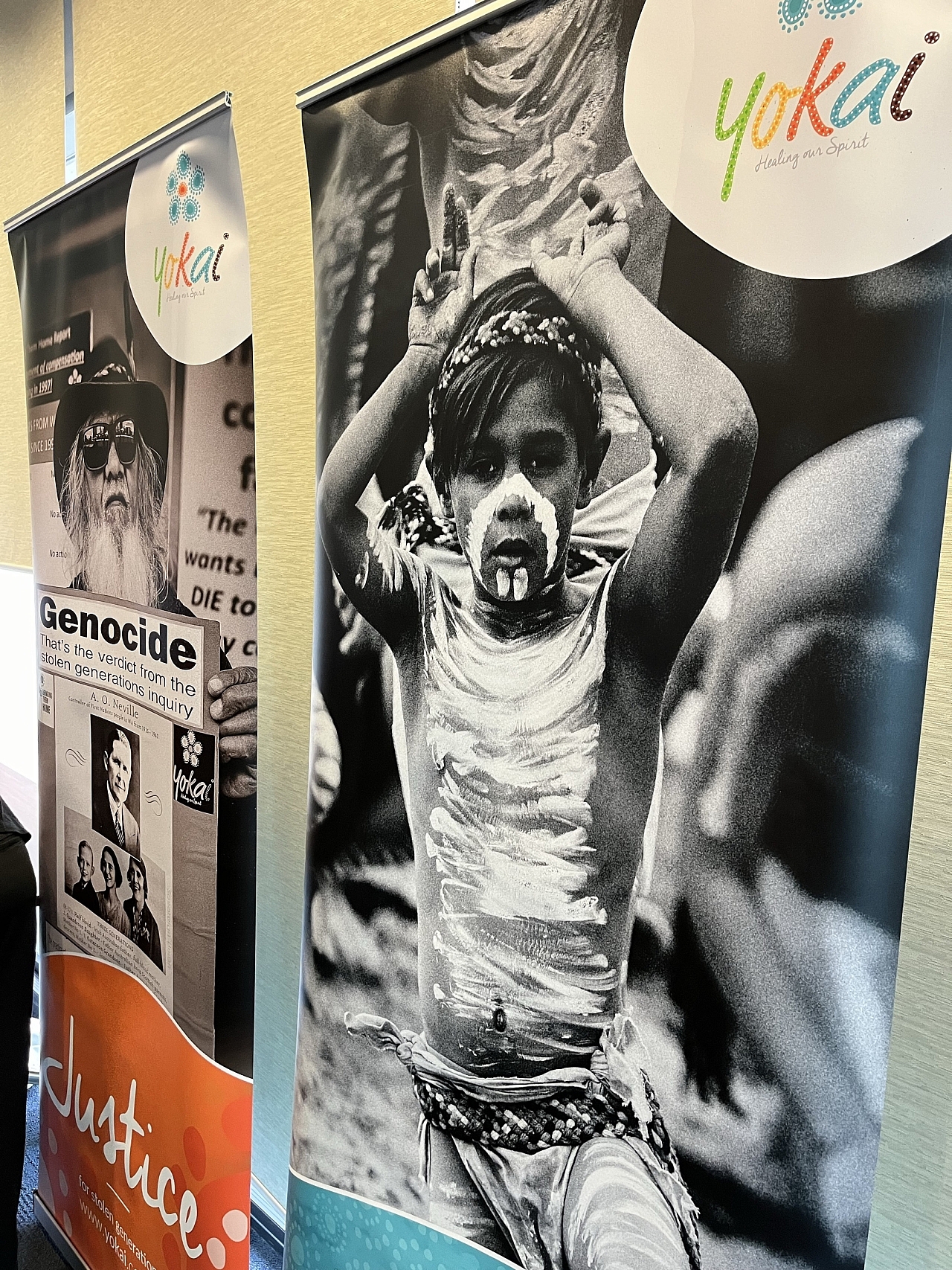The Privilege of Learning
5 August 2024
I grew up in the northwest of England, in a small cotton mill town that is famous for a mention in a milk advert on TV in the 1980’s. If you lived in the UK at the time, you would instantly know it, if not, then the anonymity of my hometown speaks volumes for it. But it’s where I’m from, it has helped define me and shape my world view. In short, it’s my culture and I often reflect that I am a proud Lancastrian. When I came to Perth, I knew very little of Aboriginal culture and history.
It is one of the great gifts of working at St Bart’s, to have the humbling opportunity to hear the truth and learn about the impact of the harmful periods and events in our nation’s history that people live with every day.
NAIDOC Week recently took place, and we were blessed to have many First Nations people come to St Bart’s and share their stories, their culture in spoken word, dance and music. It was a truly enlightening week and one that many people here at St Bart’s will reflect on and be grateful for the generosity of all those who shared so much with us. One of our guests, Tony Hansen from Yokai said, “I want every Australian to imagine an Australia in which every person will live with dignity, value and purpose. But to do that, there must be reflection on our shared history and the harmful periods and events that continue to haunt us as a nation.”
We were given the privilege of watching a documentary called “Genocide in the Wildflower State.” It’s a film that all Australian’s should watch and witness. As I watched it, I was reminded of a road trip around Europe I undertook with friends in the early 1990’s. We found ourselves in Krakow, Poland, an hour’s drive from a town called Oswiecim. Oswiecim is more widely recognised by its German name from 80 years or so ago. It’s where the nazi’s built the Auschwitz concentration camp. The parallels with the treatment of First Nations people that we see in the film reflect a shared history that describes state run eugenics, absorption and a systemic effort to destroy a race of people, culture and language.
There’s a famous quote that says, “Those that don’t know history are doomed to repeat it.” Tony Hansen also added, “When the present does not recognise the wrongs of the past, the future takes its revenge. For that reason, we must never, never turn away from the opportunity of confronting history together. The opportunity to right a historical wrong.”
The National Reconciliation Week theme for 2024 was, “Now More Than Ever”, which is a reminder to all of us that no matter what, the fight for truth, justice and the rights of Aboriginal and Torres Strait Islander people will and must continue. In a similar vein this year’s theme for NAIDOC was, “Keep the Fire Burning! Blak, Loud & Proud”, honouring the enduring strength and vitality of First Nations culture, with fire a symbol of connection to Country, to each other, and to the rich tapestry of traditions that define Aboriginal and Torres Strait Islander peoples.
St Barts is committed to continuing these conversations beyond days or weeks of significance, and taking action to ensure we continue to learn and work toward reconciliation. We will keep the fire burning.
Thank you for being a part of the heart of St Bart’s.



